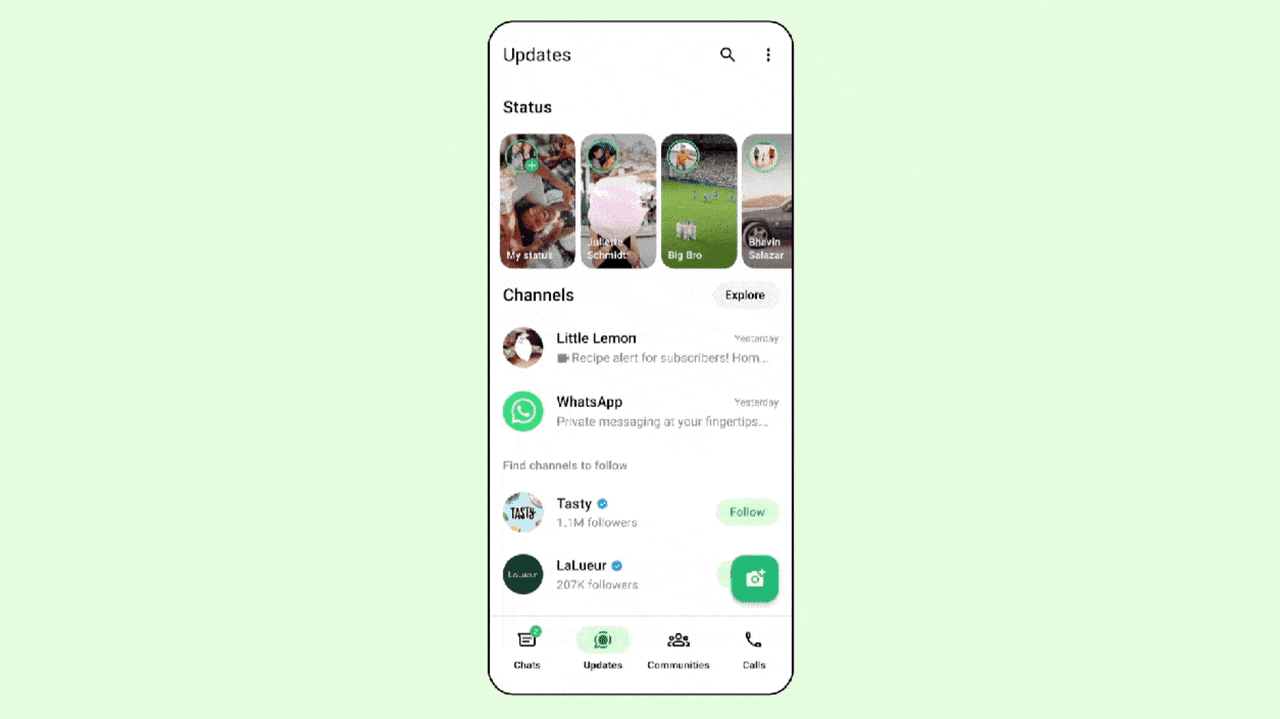iOS 26 Can Stop Your Kid From Texting New Numbers Without Your Approval
Kids will now need permission to text someone for the first time.

Apple's upcoming iOS 26 update is packed with new features and changes—but not all of them are just for fun. As part of its series of announcements during last week's WWDC, Apple revealed a series of features and changes aimed at helping parents keep their kids and teens safe when using an iPhone.
Here are eight of the changes you can expect when your update your family's devices in the fall.
Permission to text new numbers
Once your family updates your iPhones to iOS 26, your kids will only be able to text numbers within their saved contacts. If they want to send a text to a new number, they'll need your permission first.
The process works similarly to requests for additional Screen Time or to make a purchase: You'll receive the permission request in Messages, and Apple says it can be granted or rejected with one tap. This framework is also open to developers to implement in their apps, which will let kids send requests to chat, follow, or friend accounts in other apps.
Sharing age ranges with apps

If an app offers different types of content and experience depending on the age of their users, it may send you an age range request for your child. The idea is you won't have to share your kid's exact birth date; rather, you'd send a range your child's age is in. That way, the app can curate its content that range without giving away too much of your child's privacy.
In addition, you can configure these requests like other permissions across apps—you can choose whether to share this age range with all apps that want it, or if apps will need to ask for permission each time. You can also choose to never share age ranges going forward.
This change might be in response to new laws popping up throughout the U.S., that will require app stores like Apple's to verify the ages of its users.
Teen accounts now have new limits
Child Accounts are required for users under 13, but optional for kids who are ages 13 through 17. That means that while some teens have protections baked into their accounts, those who made an Apple Account after they turned 13 might not have all the limitations you want.
Going forward, Apple will apply new limits to accounts for teens by default. That includes web content filters as well as Communication Safety, a feature that warns when content containing nudity is sent or shared.
New categories for age ratings
Currently, there are four age ratings for apps on Apple's App Store: 4+, 9+, 12+, and 17+. Apple now says they're expanding this list to five, and adding the following three ratings for adolescents: 13+, 16+, and 18+. While the company doesn't specify, presumably, 4+ and 9+ will remain.
I can understand the logic here: 12+ and 17+ introduces a five year gap in between app ratings, which could pose an issue for developers with questionable content: Maybe the app isn't quite right for users 12 and under, but is fine for 16 year olds. But in the current ranking, they'd need to place it under 17+, which locks out those users would could benefit from the app. Plus, developers can now tailor their apps to more specific demographics.
App Store content warnings
With the new updates, you'll see new warnings on app store pages for apps that contain potentially problematic content, such as user-generated content, messaging, or ads. You'll also see whether the app ships with in-app content controls, so you can fine-tune the experience for your kids.
Inappropriate apps will not be shown to kids
Apple says when you set app content restrictions for your kids, the App Store will hide apps with age ratings that exceed those restrictions. That means your kids can browse through App Store pages like Today, Games, and the Apps tab without needing to see apps that are inappropriate.
An expanded Ask to Buy
On the flip side, there is now a way for kids to request to buy something outside of their age range, through Ask to Buy. Ask to Buy is the feature that allows your kids to send you a request to buy something on the App Store. Going forward, you'll be able to grant an exception to the age range, to allow your kid to buy the app anyway. You'll also be able to rescind permission at any time, which will block your kid from using the app.
New Communication Safety triggers
Apple says Communication Safety will now look out for nudity in FaceTime calls too, and will "intervene" when it detects it. In addition, the feature will blur nudity in Shared Albums in Photos.





































































![https //g.co/recover for help [1-866-719-1006]](https://newsquo.com/uploads/images/202506/image_430x256_684949454da3e.jpg)




























![[PATREON EXCLUSIVE] The Power of No: How to Say It, Mean It, and Lead with It](https://tpgblog.com/wp-content/uploads/2025/06/just-say-no.jpg?#)
























































